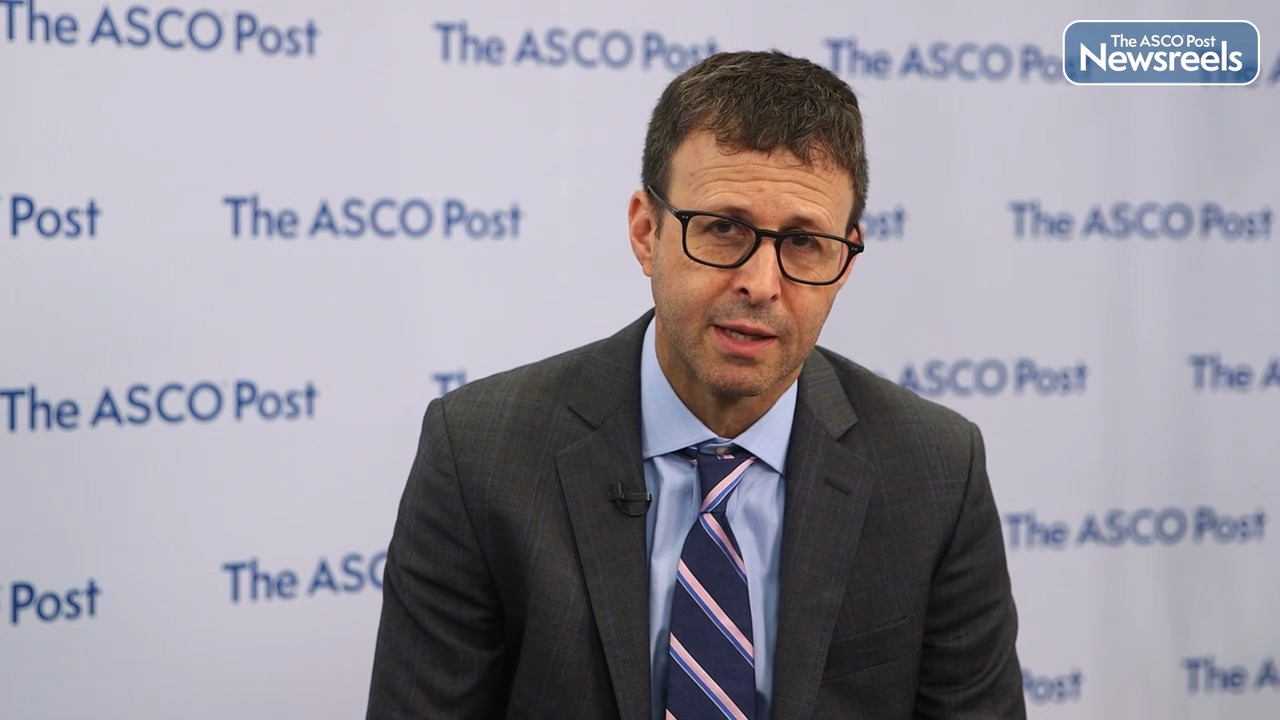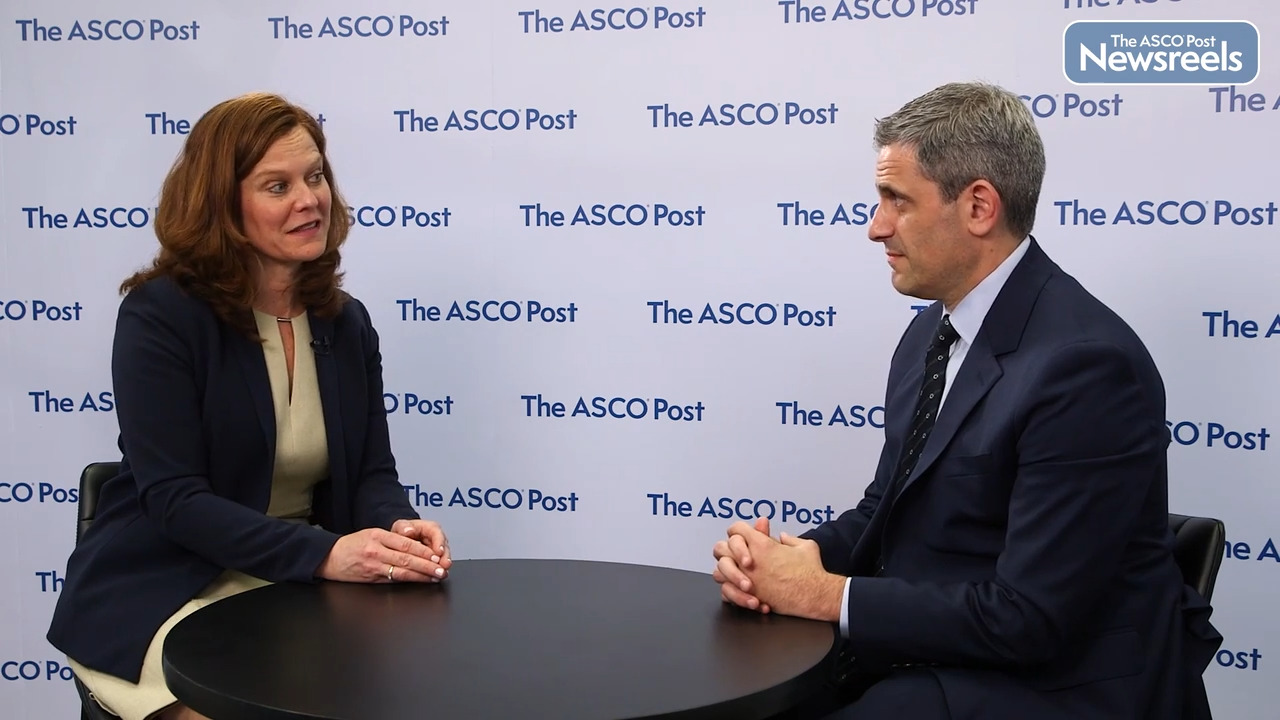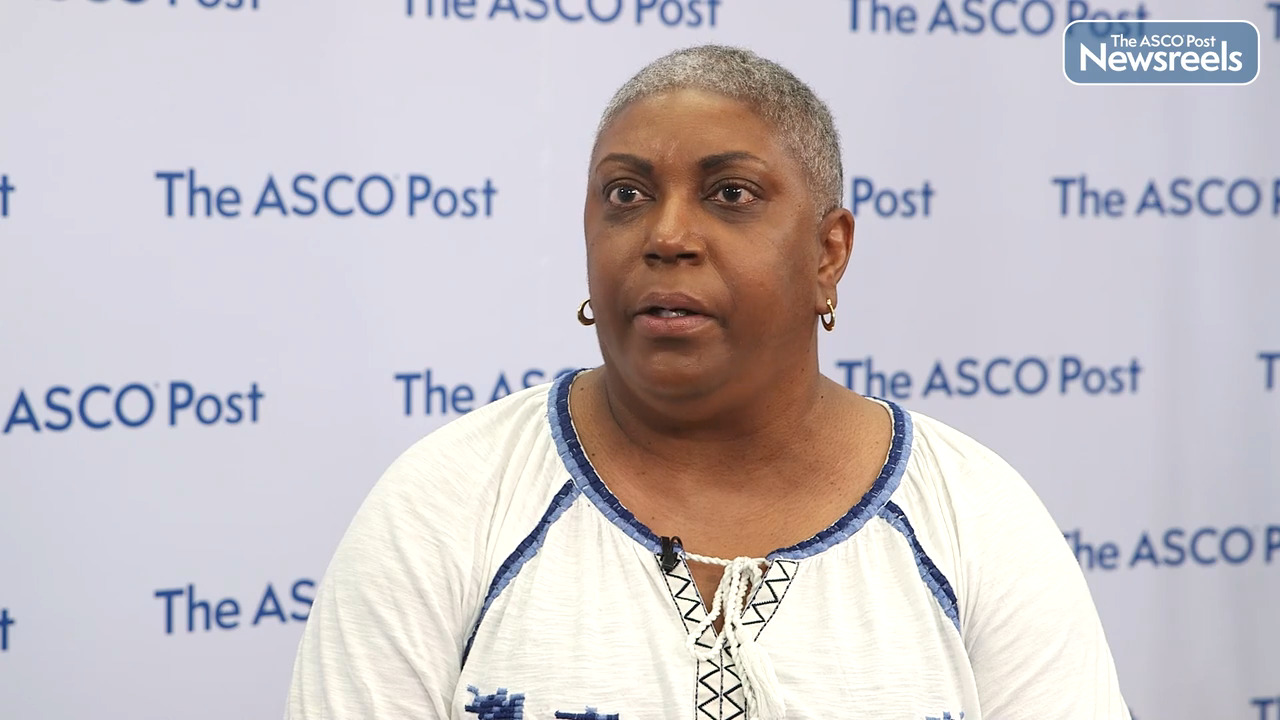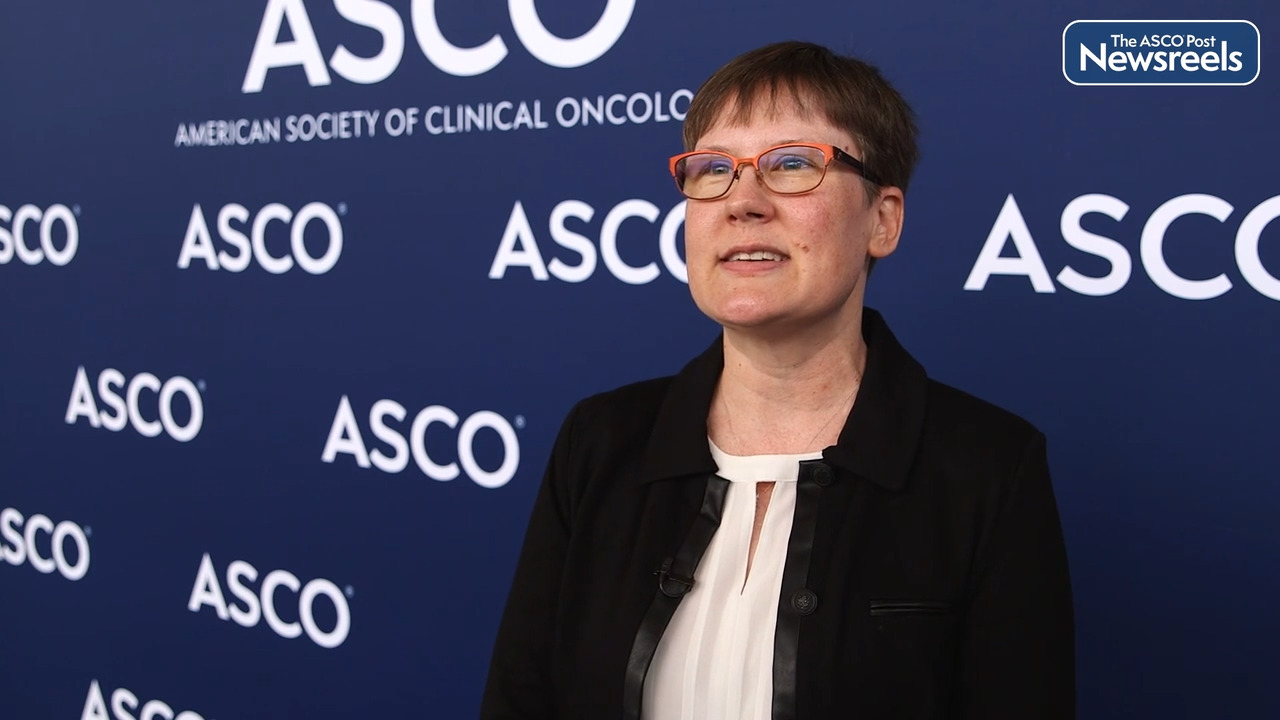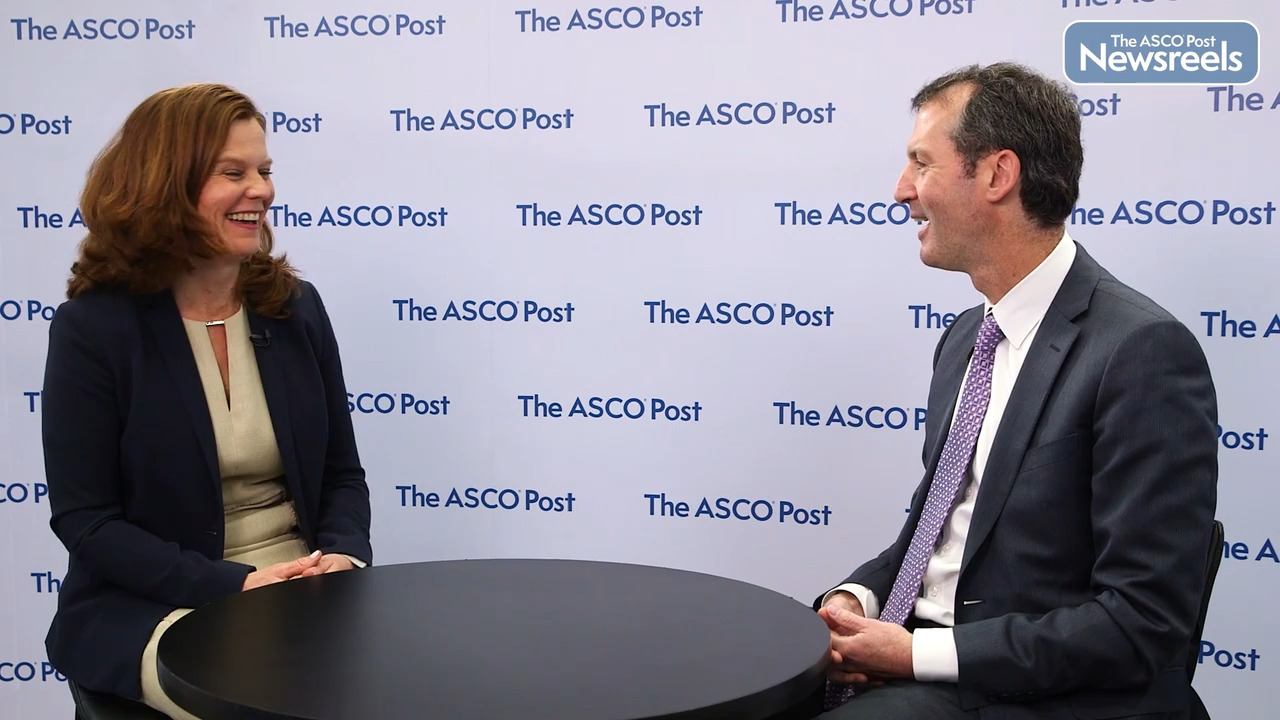Karim Chamie, MD, on Bladder Cancer: Final Results on N-803 and Bacillus Calmette-Guérin
2022 ASCO Annual Meeting
Karim Chamie, MD, of the University of California, Los Angeles, discusses final clinical results on combining the superagonist N-803 with bacillus Calmette-Guérin (BCG) in patients whose carcinoma in situ and high-grade non–muscle-invasive bladder cancers are unresponsive to BCG alone. Of note, cystectomy was avoided in more than 90% of patients with 2 years of follow-up (Abstract 4508).
Transcript
Disclaimer: This video transcript has not been proofread or edited and may contain errors.
So, patients with high-grade BCG unresponsive bladder cancer have limited treatment options. They often are offered either a radical cystectomy, which is a life altering operation which involves removal of the entire bladder and the surrounding organs, or treatments with systemic immunotherapies, such as pembrolizumab. With the QUILT-3032 study, what we did was we utilized intravesical IL-15 super-agonists in combination with BCG for patients with BCG-unresponsive bladder cancer. It's a phase two, phase three single arm study in which we enrolled 84 patients with CIS, plus or minus papillary disease, and an additional 77 patients with papillary disease only. Patients received 50 mg of BCG plus 400 mcg of N-803. This was done intravascularly once a week for six weeks, followed by three weekly treatments, similar to SWAG protocols. Our primary endpoint was safety and efficacy. Specifically, as far as efficacy, it was complete response rate at any time, and durability, which meant watching patients respond to therapy and median duration. What we found was that 71% of patients with carcinoma in situ responded at any time, and the median duration of that response was 26.2 months. Which is a phenomenal finding, because patients now have the option of being able to have intravesical therapy and maintaining their bladder for at least two years in this cohort. This compares favorably to checkpoint inhibitors, such as pembrolizumab, where they found 41% of patients had a complete response rate at any time, and the median duration of that response was about a year. The BLA for this treatment, namely N-803 plus BCG, was submitted and we hope to attain approval of this vitally important drug for this critically unmet need and frail cohort of patients.
Related Videos
The ASCO Post Staff
Richard Finn, MD, of the Geffen School of Medicine at UCLA and the Jonsson Comprehensive Cancer Center, discusses analyses from the PALOMA-2 trial on overall survival with first-line palbociclib plus letrozole vs placebo plus letrozole in women with ER-positive/HER2-negative advanced breast cancer. The study met its primary endpoint of improving progression-free survival but not the secondary endpoint of overall survival. Although patients receiving palbociclib plus letrozole had numerically longer overall survival than those receiving placebo plus letrozole, the results were not statistically significant (Abstract LBA1003).
The ASCO Post Staff
Ann H. Partridge, MD, MPH, of Dana-Farber Cancer Institute, and Kevin Kalinsky, MD, of Winship Cancer Institute at Emory University, discuss phase II findings from the MAINTAIN trial, which showed a benefit in progression-free survival for patients with hormone receptor–positive/HER2-negative metastatic breast cancer when they switched to endocrine therapy and received ribociclib after disease progression on another CDK4/6 inhibitor (Abstract LBA1004).
The ASCO Post Staff
Stephanie Walker, a former nurse and current activist with the Metastatic Breast Cancer Alliance, discusses findings from the BECOME project (Black Experience of Clinical Trials and Opportunities for Meaningful Engagement). They show that, even though Black patients comprise between 4% and 6% of all clinical trial participants, Black women with metastatic breast cancer are willing to consider taking part if steps were taken to increase their awareness, build trust through clear communication with health-care providers, involve people of shared racial/ethnic identity and health experience, and help patients find and access trials (Abstract 1014).
The ASCO Post Staff
Carryn M. Anderson, MD, of the University of Iowa Hospital, discusses phase III results of the ROMAN trial of avasopasem manganese for patients with severe oral mucositis who are receiving chemoradiotherapy for locally advanced, nonmetastatic head and neck cancer. Compared with placebo, avasopasem manganese improved severe oral mucositis (Abstract 6005).
The ASCO Post Staff
Ann H. Partridge, MD, MPH, Dana-Farber Cancer Institute, and Ian E. Krop, MD, PhD, of Yale Cancer Center, discuss phase I/II findings on patritumab deruxtecan, a HER3-directed antibody-drug conjugate, in patients with HER3-expressing metastatic breast cancer. A pooled analysis showed antitumor activity in women with HR-positive/HER2-negative and HER2-positive advanced disease, as well as triple-negative breast cancer (Abstract 1002).
